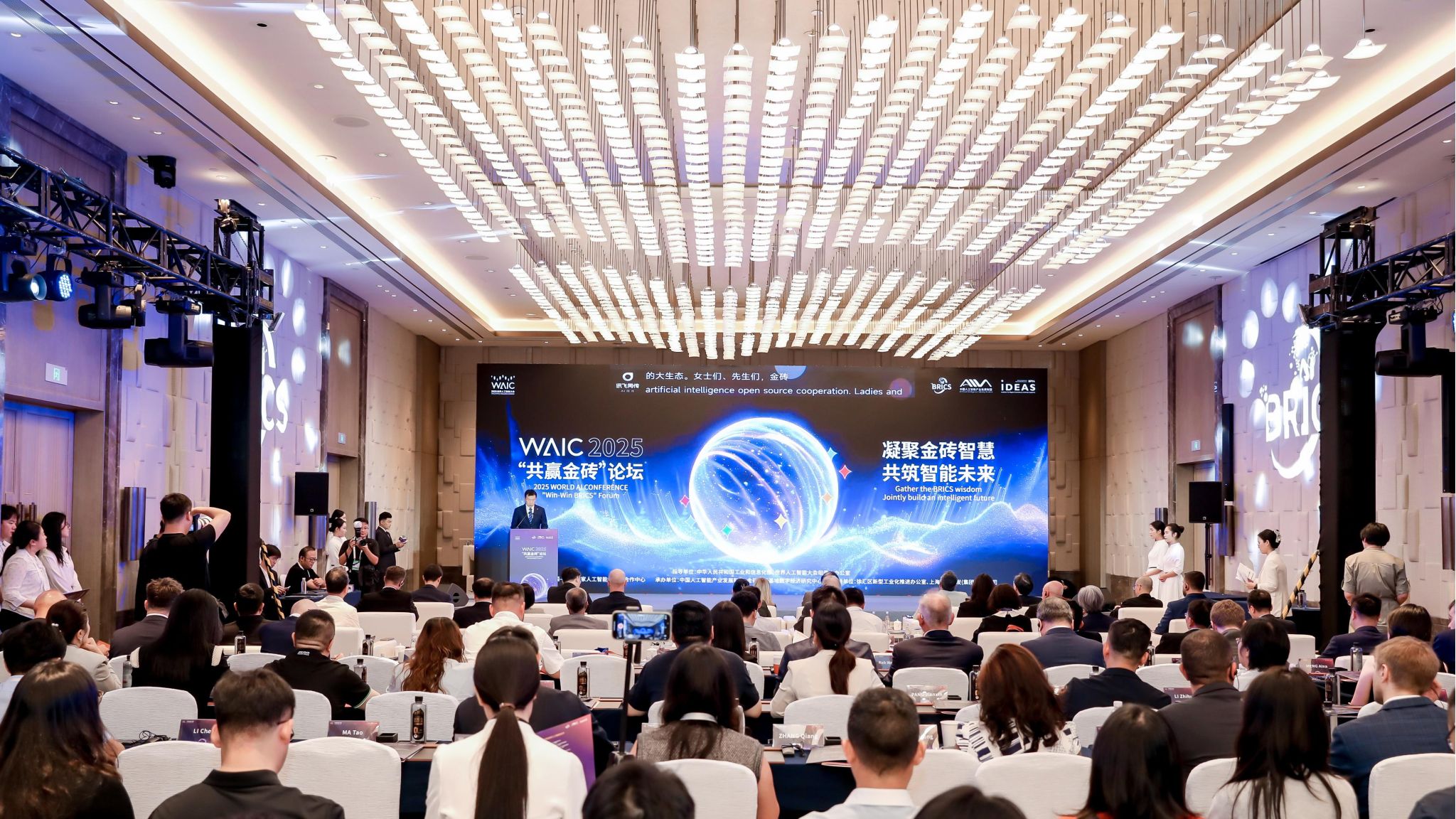

The "Win-Win BRICS" Forum is held in Shanghai on July 27. [Photo/en.xmu.edu.cn]
The "Win-Win BRICS" Forum, held in Shanghai on July 27 as part of the 2025 World AI Conference, marked a significant milestone in the development of artificial intelligence. At this event, the international academic journal "AI and Innovation" (AI²), jointly founded by Xiamen University (XMU), Tsinghua University, the Institute for Digital Economy and Artificial Systems BRICS PartNIR, and international publisher Wiley, officially started to call for papers from around the globe.
During the forum, Ji Rongrong, assistant to the president of XMU, delivered a keynote speech, showcasing China's AI technology prowess in advancing digital economy development in BRICS nations. Ji also emphasized XMU's commitment to promoting AI lightweighting and universal access through technological innovation, offering Chinese solutions to bridge the digital and intelligence divides faced by the Global South.
At the inauguration of the journal, representatives from relevant institutes unveiled the journal. Chen Jin, director of the Research Center for Technology Innovation at Tsinghua University, said that the mission of AI² is to establish an international academic platform for the Global South, driving the deep integration of technological development and human civilization progress, while also exploring sustainable development paths in line with global common interests.
As a core founding institution of the journal, XMU is leveraging its interdisciplinary strengths, with Chao Fei from the Institute of Artificial Intelligence serving as deputy editor. The journal has formed an international editorial board comprising over 70 renowned scholars from more than 30 countries, ensuring academic rigor and global representation.
AI² journal focuses on AI fundamental theories, engineering systems, social governance, and innovation ecology, driving the development of intelligent science from an interdisciplinary perspective. Its launch not only signifies deepening BRICS cooperation but also exemplifies XMU's commitment to the national strategy of opening up to the world.
Through the journal, XMU will continue to promote academic cooperation and technological innovation among BRICS nations, injecting new energy into the construction of a community with a shared future for humanity and opening a new chapter of collective progress for the Global South.